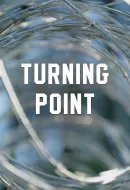In this episode of Writer's Workshop, we catch up with Tom Wolfe who observes "I think if things are going well for you in writing...sometimes marvelous rushes of words will just fall into place." Recalling the accidental beginning of his personalized style of reporting, which became famous as new journalism, Wolfe explains his belief that "all writer's blocks are nothing but fear." He wonders why students "who are great letter writers and can just leave you in stitches" will "stiffen up" and lose their style the minute they are assigned a piece of writing. Wolfe talks about how sometimes it is best not to overwork your prose, that a bit of roughness can be good, you don’t want to sandblast all of the good features away from it. Wolfe talks about assistant editors of magazines as being more helpful in publishing the nonfiction young authors. It is different for short stories and fiction.
Side Notes
- March 2, 1930 - May 14, 2018
- After studying at Washington and Lee University (B.A., 1951), Wolfe, who had been a talented baseball pitcher, tried out with the New York Giants but did not make the team. At that point he headed off to Yale (1957).
- Thomas Kennerly Wolfe Jr. was an American author and journalist widely known for his association with New Journalism, a style of news writing and journalism developed in the 1960s and 1970s.
- Much of Wolfe's work was satirical and centered on the counterculture of the 1960s.
- Publication of The Electric Kool-Ai (1957)d Acid Test August 19, 1968.
- Release of The Bonfire of the Vanities film adaption December 21, 1990.
- In 2010 Wolfe was awarded the Medal for Distinguished Contribution to American Letters from the National Book Foundation.
- In 2023 his life and career were the subject of a well-received documentary film, Radical Wolfe.
The Writer's Workshop features 15 major talents in contemporary literature who met in a one-on-one forum with well-known author William Price Fox and University of South Carolina creative writing students. Each writer discussed his or her personal writing methods, furnishing insights into the highly individualized process of literary creation. Other authors include George Plimpton, James Dickey, James McPherson, John Gardener, John Hawkes, John Irving, Kurt Vonnegut, Nora Ephron, Pauline Kael, Reynolds Price, Stephen Spender, Susan Sontag, Tom Wolf, William Price Fox, and William Styron.
